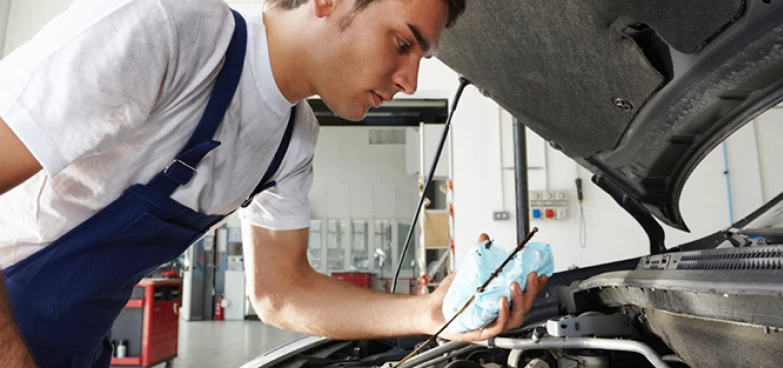
Partner Article
Under Covid’s long shadow, can small car repair businesses tap into the digital future to survive and grow?
By Andrew Jervis, Co-Founder of ClickMechanic
The upsurge in UK Covid-19 cases has the small business community nervous. In the motor repair sector, the reverberations of the first wave and subsequent upheaval have been deeply felt – I refer in particular to the thousands of small, local mechanics nationwide. In April, nearly half ceased trading temporarily, and the majority of the rest saw a reduction in activity of over 70%. To avoid permanent closures, the overriding priority now must be to instil greater resilience into their business models. That’s where technology and collaboration can play a meaningful role to help them get through the crisis and thrive.
The pandemic hastened digitalisation on an unprecedented scale, accelerating it by a number of years. We have seen ecommerce and digital payments boom, with a greater reliance by consumers on mobile channels and real-time communication with providers. But how can small traditional players be a part of the digital future in a space still behind the modernisation curve?
Breaking down barriers to innovation
For small repair shops hoping to adopt advanced technologies to optimise cost and operational efficiencies, and offer contact-free services to accommodate social distancing measures, the prospect can be a daunting one due to the perceived high investment level and expertise required to get it right. I believe that the best solution is to tap into a tech-savvy platform already established on the market.
With budgets severely stretched, and many not working with a full staff, local mechanics need an easy, turnkey solution that causes no business interruption through complex IT infrastructure set-ups, and doesn’t carry heavy expenditure or long-term contractual tie-ins. It can be a SaaS provider where they can migrate certain processes to the Cloud to speed up complex tasks, or industry aggregators and other platforms that have in-built AI-powered data analytics capabilities to personalise services based on customers’ location and specific needs.
The advantages are manifold, as being part of a wider ecosystem provides small businesses with heightened market visibility from day one, as well as the tools and guidance to become digitally enabled and agile enough to deal with market volatility. They also gain access to a large, ready-made target audience base. This can be a catalyst for immediate value creation. Another important benefit is that this approach empowers small independents to succeed while retaining autonomy and their own brand identity.
**The driving force – opportunity for growth **
With a second national lockdown now in place, people are likely to repair their existing vehicles rather than buy new ones. They’ll also rely more on their cars to avoid public transport use and maintain social distancing. Meanwhile, a surge of MOT tests are now due following the end of the Covid-related extension. All of this signals an influx in demand for repair and maintenance services. Every crisis holds an opportunity for improvement; small businesses can level the playing field and open up access to innovation by making use of existing industry tools, so they can continue operating at full steam and accommodate growing demand.
To offset the threat of mass job losses, it’s SMEs who hold the key to kick-starting regeneration of a bruised economy. The UK vehicle maintenance and repair market is valued at £28 billion, and wholesale and retail trade – including vehicle repair – accounts for over a third of SME turnover in the country’s private sector, and 14% of total SME employment. With the right approach, there’s enormous potential for success here.
This was posted in Bdaily's Members' News section by Andrew Jervis, Co-Founder of ClickMechanic .
Enjoy the read? Get Bdaily delivered.
Sign up to receive our popular morning National email for free.








 Raising the bar to boost North East growth
Raising the bar to boost North East growth
 Navigating the messy middle of business growth
Navigating the messy middle of business growth
 We must make it easier to hire young people
We must make it easier to hire young people
 Why community-based care is key to NHS' future
Why community-based care is key to NHS' future
 Culture, confidence and creativity in the North East
Culture, confidence and creativity in the North East
 Putting in the groundwork to boost skills
Putting in the groundwork to boost skills
 £100,000 milestone drives forward STEM work
£100,000 milestone drives forward STEM work
 Restoring confidence for the economic road ahead
Restoring confidence for the economic road ahead
 Ready to scale? Buy-and-build offers opportunity
Ready to scale? Buy-and-build offers opportunity
 When will our regional economy grow?
When will our regional economy grow?
 Creating a thriving North East construction sector
Creating a thriving North East construction sector
 Why investors are still backing the North East
Why investors are still backing the North East